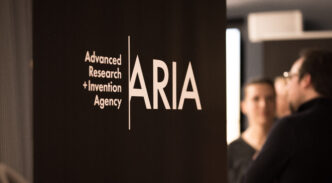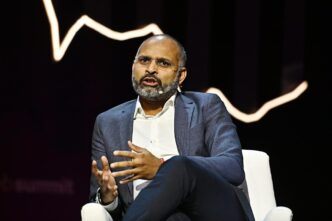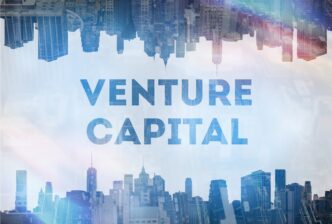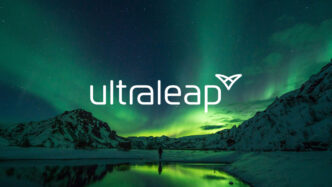Florian Seibel, cofounder and CEO of Munich-based Quantum Systems, had just wrapped a major funding milestone when fatigue started to set in. After months of intense deal-making, the stress was catching up with him—even as his company officially became a European defense tech unicorn.
The decade-old startup, which builds dual-use autonomous drones capable of intelligence gathering and battlefield operations, closed a €160 million Series C round led by Balderton Capital. The fresh capital pushed its valuation past $1 billion, marking a major win not just for the company but for Europe’s emerging defense tech scene.
Despite the celebratory headline, Seibel wasn’t in the mood to celebrate. His company’s success, he noted, is deeply tied to Ukraine, where Quantum now has a factory and hundreds of drones deployed daily. As war continues to shape global geopolitics, the demand for Quantum’s unmanned aerial vehicles has surged. Nearly half the company’s 2024 sales came from the U.S., but Seibel was intentional about this round’s lead investor being British. With transatlantic relations tense and Europe ramping up defense spending, his message was clear: Europe must look inward for long-term security.
Now competing more directly with fellow German unicorn Helsing—an AI-focused defense tech startup, Quantum Systems is racing to expand its software capabilities. Seibel believes the next chapter of growth won’t be fueled by hardware alone. Instead, Quantum is preparing to roll out its own unmanned systems OS this June, enabling seamless coordination across mixed fleets of drones, including third-party units. This strategic pivot brings Quantum into even closer rivalry with Helsing, which recently began producing its own UAVs.
From military pilot to tech founder, Seibel has long been critical of slow procurement and bureaucratic hurdles in defense. Quantum initially focused on agricultural drones, but quickly adapted to military needs once the war in Ukraine began. Revenues are expected to reach €250 million this year, up from €115 million in 2024, and Seibel says they’re on track for €500 million by 2026—a key milestone that could support an IPO.
To scale further, the company is hiring aggressively in AI, software, and drone swarm capabilities, aiming to grow from 500 to 750 employees by end of 2025. Its playbook draws inspiration from U.S. defense startup Anduril, which blends hardware with a powerful proprietary software stack. Seibel isn’t interested in becoming another legacy prime contractor like Airbus; instead, he wants Quantum to lead the next generation of agile, software-integrated defense firms.
A Founder With Sharp Edges and Angel Ambitions
Known for being blunt—even brash—Seibel’s reputation in the industry is polarising. He doesn’t hold back on LinkedIn or in closed-door meetings, often calling out inefficiencies in European defense policy. While some investors find his style abrasive, others see it as a sign of conviction. “Sometimes he rams his head against walls to get through,” one board member noted.
That same passion has occasionally sparked controversy. Last year, Seibel deleted a LinkedIn post accusing Helsing of exploiting the Ukraine war for marketing—only after legal threats were made. Internally, his decision to launch a new strike drone startup, Stark, caused unease among Quantum investors, with concerns over focus and conflicts. Eventually, Seibel stepped back from operational involvement in Stark but remains a founding investor.
These bold moves aren’t limited to corporate strategy. At a private dinner with German finance leaders, Seibel reportedly redirected the conversation with a sharp reminder: nothing discussed would matter if Ukraine didn’t survive. He’s a founder driven by urgency, not formality. While this intensity has made him few friends in government circles, it’s also pushed Quantum to the forefront of European defense tech.
Today, lobbying falls largely to his co-CEO Sven Kruck, while Seibel focuses on product and strategy. This new leadership split reflects a maturing organisation—one that must now win influence, not just contracts, in Berlin and beyond. Seibel admits he’s learning to be more pragmatic, especially as Quantum becomes central to European defense procurement.
Outside his main venture, Seibel has quietly become an active angel investor in defense-adjacent startups, from robotics to bio-engineered sensors. Founders say he’s generous with time and insights, often showing up at test sites and offering tactical feedback. He views these investments not only as ecosystem support but as potential merger paths for Quantum Systems in the future.
At 45, Seibel has no plans to build another company. “Quantum is the first and the last,” he says. Still, he remains open to reinvention—he’s passionate about animals, gliders, and even spirituality. But until Quantum reaches its full potential, he’s all in. Whether that journey ends in an IPO or a strategic acquisition, Seibel’s mission remains unchanged: building a future-proof European defense tech unicorn capable of leading on the global stage.











